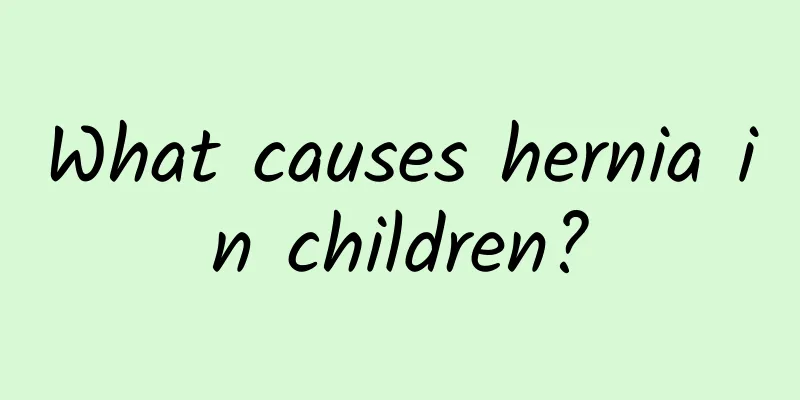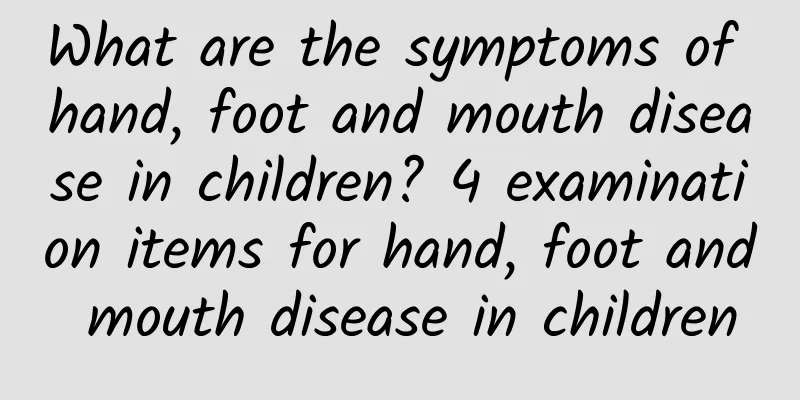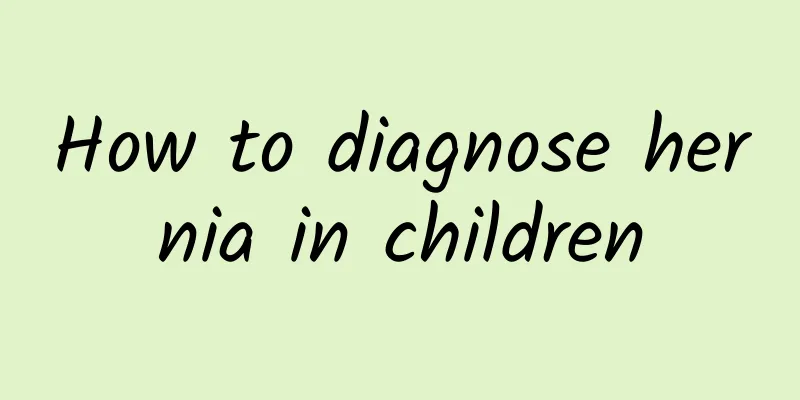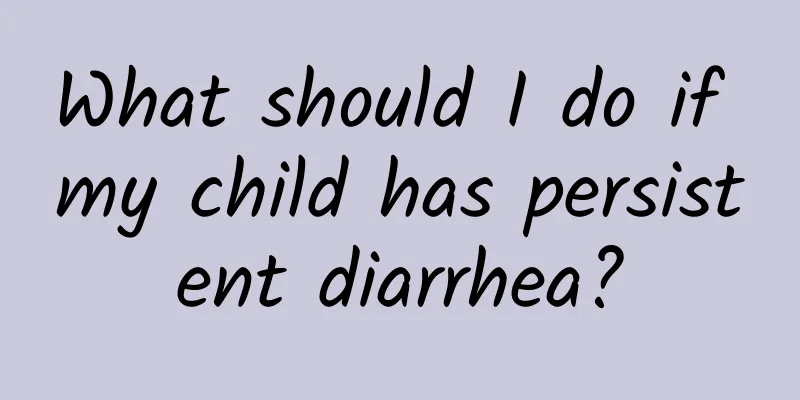Does diarrhea affect the development of children?
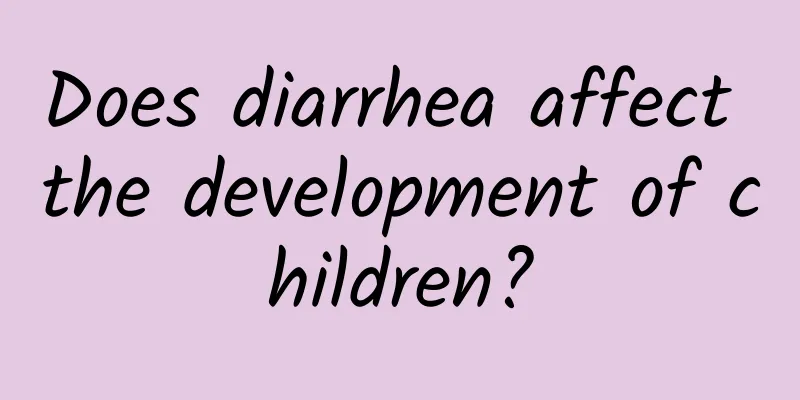
|
Diarrhea is a disease that many people are worried about. This disease is easy to occur in children. Many parents are very afraid that their children will have this disease, because this disease will affect the development of children and lead to many adverse consequences. Therefore, everyone should pay attention to some hazards. So, what are the hazards of diarrhea? (1) Malnutrition and vitamin deficiency: If the course of diarrhea is long, such as long fasting time or long-term calorie deficiency, it can often cause malnutrition and various vitamin deficiencies. Indigestion and malnutrition can cause each other, often resulting in a vicious cycle and leading to adverse consequences. Vitamin A deficiency can cause dry eyes and corneal softening; vitamin D deficiency can cause hand and foot convulsions. (2) Infection: Common infections include otitis media, angular cheilitis, upper respiratory tract infection, bronchitis, pneumonia, furuncle, sepsis, urinary tract infection and phlebitis. Various infections may be the cause of diarrhea, but there are also secondary infections after diarrhea due to reduced systemic resistance. Children with chronic diarrhea or original malnutrition are prone to fungal infections, such as thrush, fungal enteritis, and even systemic fungal diseases. (3) Toxic hepatitis: Severe diarrhea may cause jaundice, which is common in children with malnutrition and severe sepsis and has a poor prognosis. Therefore, toxic hepatitis is one of the serious complications of diarrhea. (4) Others: such as acute renal failure, disseminated intravascular coagulation, septic shock, toxic encephalopathy, etc. If not handled properly, acute heart failure, hyperkalemia, toxic intestinal paralysis, intestinal bleeding, intussusception, etc. may also occur. Intestinal perforation and peritonitis may occasionally be seen. What kind of diet should children pay attention to after suffering from diarrhea: 1. It is relatively fortunate that the baby is still breastfeeding when sick. The baby can eat whenever he wants without too many taboos. If the baby has been eating milk powder, you can switch to diarrhea milk powder. But not all babies accept the taste of diarrhea milk powder. If the baby does not eat it, you can only choose to feed the baby diluted formula milk. You can add water and milk powder from less to more according to the condition of diarrhea and digestion of the child. 2. The diet other than milk is basically based on the development of the child's diarrhea, following the rule of "rice soup -> thick rice soup -> thin porridge -> normal rice porridge -> add complementary food -> rice/noodles". Complementary food can be added later to add meat that is not easy to digest. Pay attention to the baby's digestion. When appropriate, you can use a blender to grind the ingredients (for example, crush the rice to make thick rice soup or rice porridge). 3. Pay attention to rehydration. If the hospital does not prescribe oral rehydration saline, you can also make it yourself. The method is as follows: Use 150-180 ml of water or rice soup, grab a pinch of sugar with four fingers, grab a pinch of salt with three fingers, and shake well. The ingredients and effects are similar. It is important to note that only baby or regular glucose can be used as sugar, as it is the only sugar that does not impose an additional burden on gastrointestinal metabolism. Other sugars, such as sucrose, will increase the burden on the gastrointestinal tract and may make diarrhea in children more severe. 4. Babies at this stage will appear extremely hungry and will cling to food. Parents must be restrained. If you give your baby something else out of pity, it may harm the baby. At that time, I was soft-hearted and fed my baby a few noodles at noon. As a result, the child had more severe diarrhea in the afternoon, and it was not until he pulled out those noodles that the diarrhea subsided. I hope the above analysis can be helpful to everyone. You must pay attention to conditioning in daily life, and pay attention to your physical and mental changes. Parents must restrain their children's diet and not blindly feed their children certain foods. In daily life, give children less snacks, especially in autumn, when children are prone to diarrhea, and parents need to keep them warm. |
<<: What are the dangers of diarrhea in children?
>>: How to prevent children from getting diarrhea
Recommend
What to do if your two-year-old baby doesn’t talk? 4 quick tips to get your baby talking
For new parents, it is very important to know whe...
Symptoms of congenital polio
We should pay close attention to babies' illn...
Tics usually refer to tics, which are clinically called tic disorders.
Tics usually refer to tics, which are clinically ...
Is there a big difference between herpetic pharyngitis and hand, foot and mouth disease in children?
Although both herpangina and hand, foot and mouth...
Initial treatment of mumps
Mumps is a chronic disease that can last up to 10...
How to treat baby's dry cough
When a baby gets sick, parents are most worried. ...
What are the symptoms of ADHD in babies
Symptoms of ADHD in infants mainly include increa...
Chinese medicine for treating pneumonia in children
There is a Chinese saying: "There are three ...
Baby cough has allergic rhinitis
If your baby coughs and has allergic rhinitis, it...
How to treat hemolytic jaundice in children
Treatments for hemolytic jaundice in children inc...
How to check diarrhea in children
Pediatric diarrhea is a common digestive tract di...
How do children develop hernias? Five things to prevent
Because premature babies have low height and weak...
Several common neonatal pathological jaundice
Pathological jaundice breast milk This is a speci...
Is it expensive to treat pediatric eczema?
Nowadays, mothers are studying pediatric eczema. ...
What is the fastest way to supplement calcium? Eating more of these 6 foods can help supplement calcium
Eating sesame paste, dried shrimps, seaweed, must...
